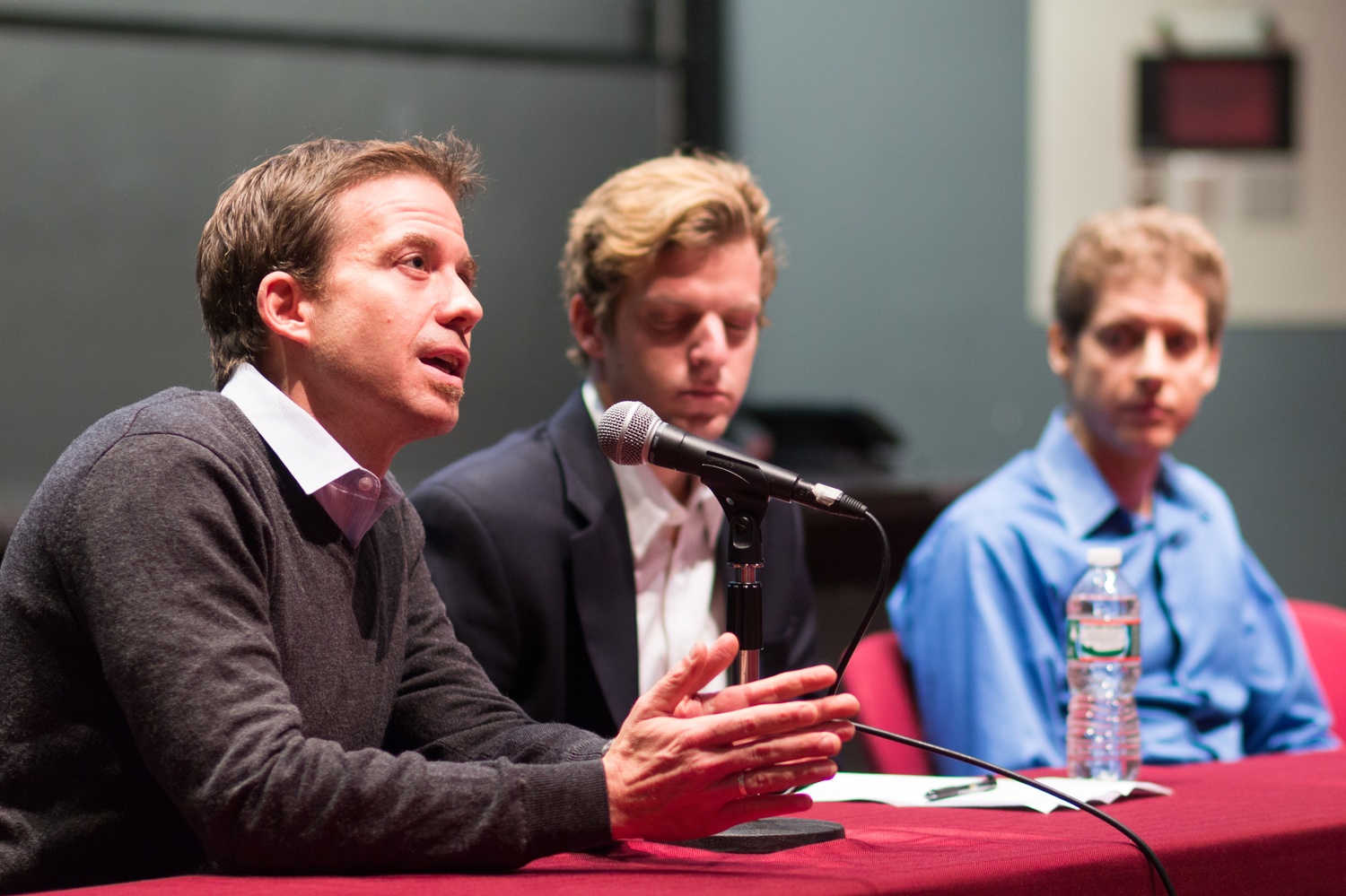
News
Summers Will Not Finish Semester of Teaching as Harvard Investigates Epstein Ties

News
Harvard College Students Report Favoring Divestment from Israel in HUA Survey

News
‘He Should Resign’: Harvard Undergrads Take Hard Line Against Summers Over Epstein Scandal

News
Harvard To Launch New Investigation Into Epstein’s Ties to Summers, Other University Affiliates

News
Harvard Students To Vote on Divestment From Israel in Inaugural HUA Election Survey
Partners in Health Holds Teach-In on Ebola

West Africa lacked the infrastructure to contain the Ebola epidemic that has ravaged the region, global health experts said at an “Ebola Teach-In” Wednesday evening.
At the event, which was hosted by Partners in Health Engage and several other student groups, attendees discussed inequality, strategies to contain the epidemic, and how poor infrastructure allowed Ebola to spread.
The event’s organizers began by giving background on Ebola, explaining that the virus is only transmitted through body fluids and is very unlikely to mutate its genome to become airborne.
Storm Portner, a fellow with Wellbody Alliance, a nonprofit working to provide healthcare in Sierra Leone, said that much of the epidemic could have been prevented if the proper infrastructure had been in place.
“I think that definitely there are many, many lessons to be learned,” he said. “Honestly it’s quite sad that it can start that small and end up so big…stronger systems could have prevented what we have today.”
One member of the audience asked whether the international community would “seize the moment” to draw attention to the disparities of wealth that he said were at the roots of the infrastructure problem.
Portner said that Wellbody Alliance, for the past eight years, has been trying to combat “precisely this,” referring to the audience member’s comment.
“Unfortunately, it sometimes takes a crisis to draw attention,” Portner said.
Shawn D'Andrea, an International Emergency Medicine fellow at Brigham and Women's Hospital, drew parallels to the international community’s response in 1994 to the Rwandan genocide.
“There are some historic events in the last 20 years that give us all pause, and make us rethink how things are done,” he said. “Rwanda is an example of something that changed how the United Nations’s response mechanism unfold[ed]. My suspicion is that we will see something analogous after this event, but that remains to be seen.”
Another audience member brought up the issue of hysteria in the United States over Ebola, referencing the school in Texas that closed because of fears that a nurse infected with the virus had visited the school.
“I think there’s room to take a deep breath, have a look at where the problems developed, and develop a response,” D’Andrea said. “And I think we’re seeing that happen right now across the country.”
Near the end of the talk, the panelists called for more help in combating the epidemic. Clark Freifeld, co-founder of a website called HealthMap, said that while a software developer might not be “the first thing that would come to your mind when you think of an Ebola outbreak, there are creative ways to apply different kinds of skills.” HealthMap provides alerts and data on infectious diseases.
D’Andrea said that there is also a need for “more providers on the ground” in West Africa right now.
“There’s just not enough hands in the effort so far,” he said.
Want to keep up with breaking news? Subscribe to our email newsletter.
